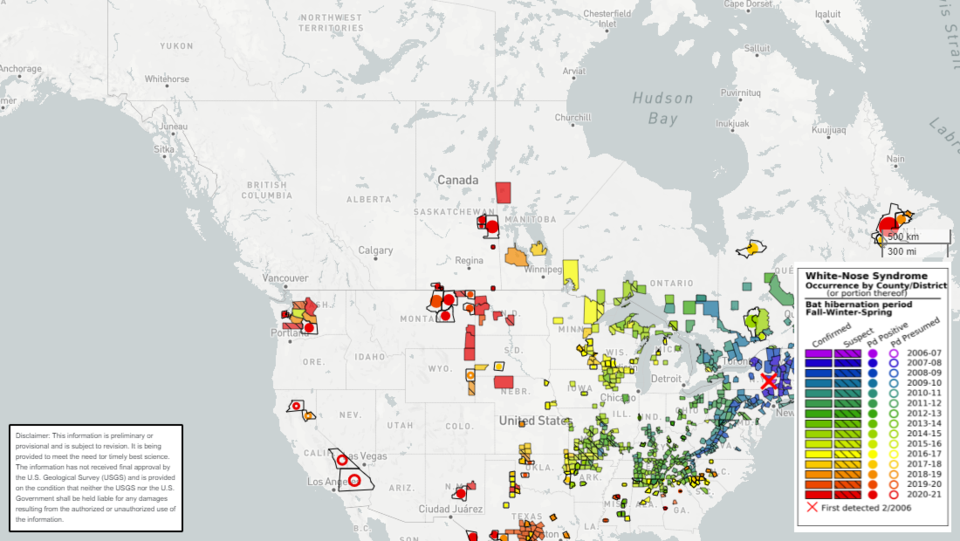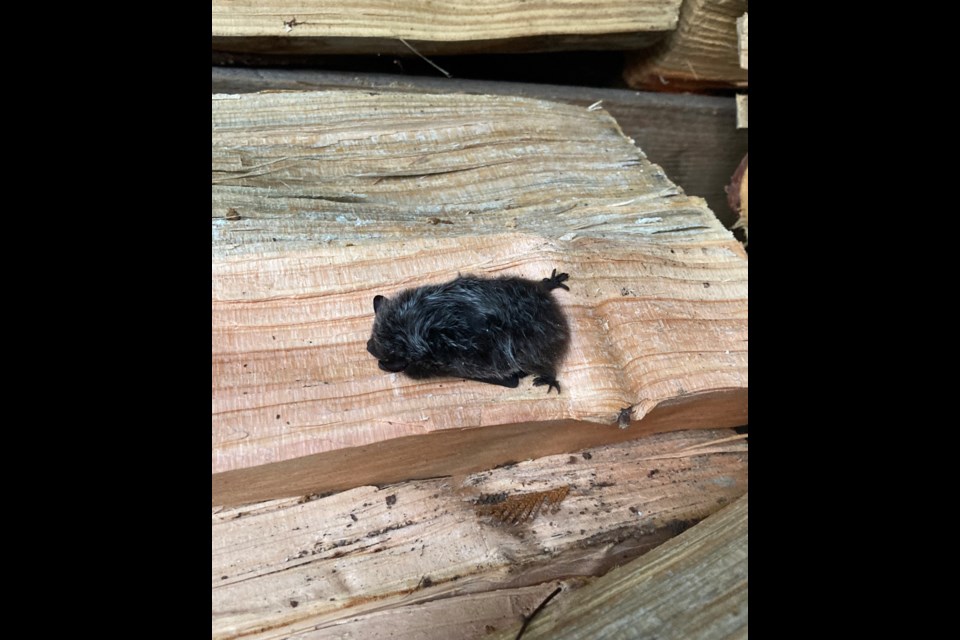The province's bats are threatened by disease and researchers are asking the public for help.
The BC Community Bat Program, in collaboration with the Province of BC, are asking the public for help in the effort to detect and prevent the spread of White-Nose Syndrome (WNS) in BC bats. Residents are asked to report any bat activity observed in winter, when they should be hibernating, and any sick or dead bats found before May 31.
WNS is a fungal disease that is harmless to humans but has devastated North American bat populations. The fungus attacks bats while they are hibernating. Bats often wake to clean the fungus from their skin. This uses valuable energy, and finally the bats die from hypothermia and starvation. Two species present in BC - Little Brown and Northern Bats - are now listed as Endangered under Federal Species at Risk legislation. As a key predator for many invertebrate species, bats are essential parts of BC ecosystems, and they provide billions of dollars of economic benefit to North America by helping control agricultural, forest, and urban pests. Please visit https://www.whitenosesyndrome.org to learn more about the disease.

"Bat reports may also alert researchers to regions with unusual activity and can provide data on when bats return to the landscape and become active in a region," says Danielle Dagenais, Vancouver regional bat coordinator for the program. Bat reports over the years have indicated that the Silver-Haired bat often chooses to hibernate in wood piles in southern BC. These sleeping bats should be left alone, and when possible, please consider taking wood from another pile and allowing the bat to hibernate on your property. If you find a hibernating or roosting bat on your property, keep your distance, inform family members, snap a photo, and report it to the BC Community Bat Program for advice. Never touch a bat with your bare hands; if you or your pet has been in direct contact with the bat you will need further information regarding the risk of rabies.
As the climate is milder in the Greater Vancouver area, bat activity is expected sooner than colder BC regions. With Spring around the corner and nicer weather coming to our region, the program is encouraging the public to look up to the skies on nice nights around sunset and look for bat activity. "Please report any bat sightings and dead bats to the BC Community Bat Program; bat carcasses are very important as they can be tested for WNS," says Dagenais. Reports can be made online at www.bcbats.ca, via email at [email protected] or by calling 1-855-922-2287 ext. 11 (1-855-GOT-BATS).
In partnership with the BC Ministry of Environment, and funded by the Habitat Conservation Trust Foundation, Forest Enhancement Society of BC, Habitat Stewardship Program, and local funders, the BC Community Bat Program provides information and promotes local stewardship and citizen science. You can find out more about the BC Community Bat Program and options for helping local bat populations at www.bcbats.ca, [email protected], or 1-855-922-2287.


